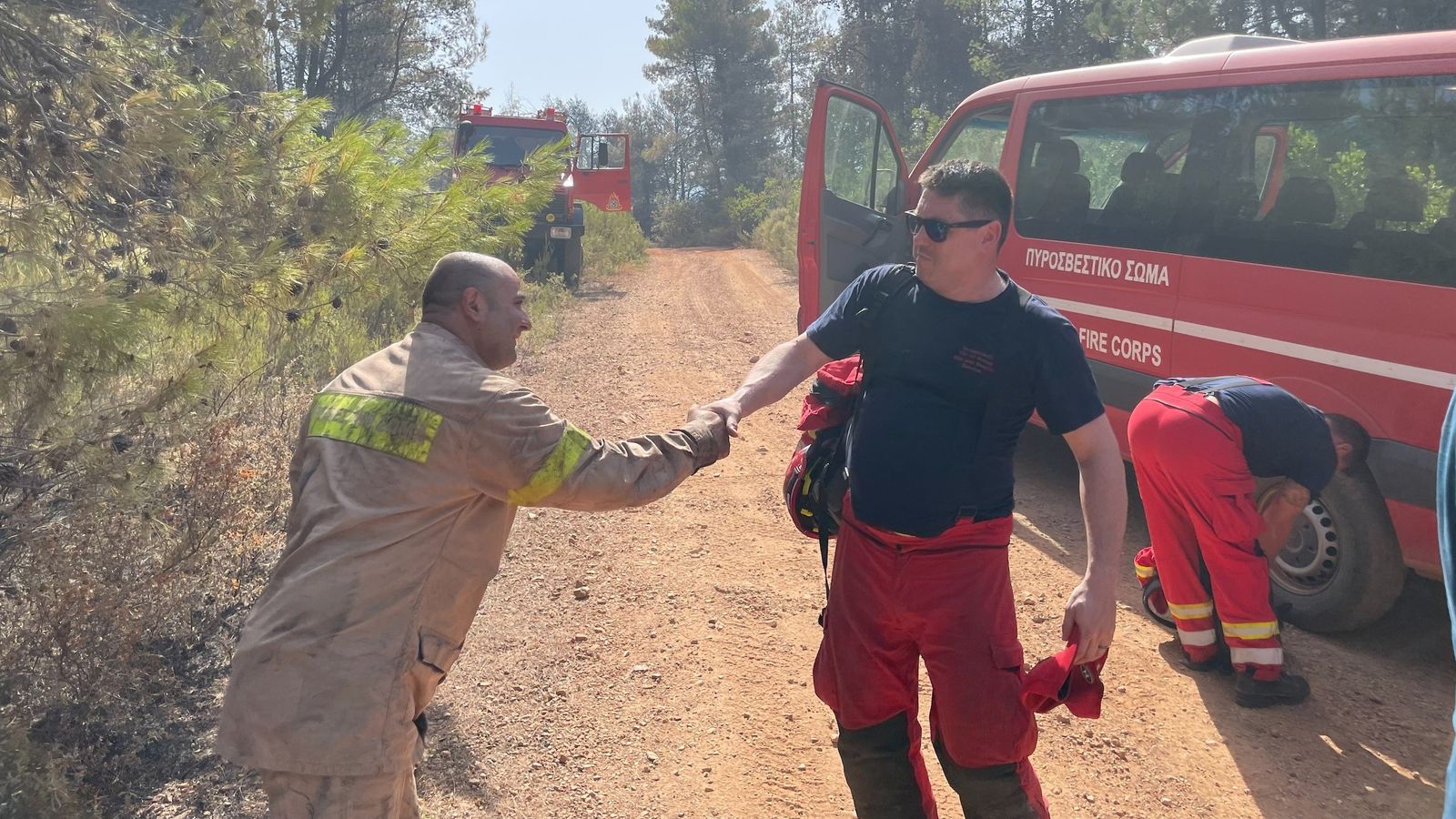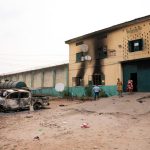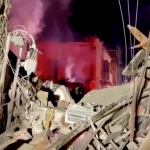Even before their day begins battling Greek wildfires, British firefighters make an hour-long drive up a steep hillside.
The terrain is dry, rugged and the roads winding and narrow. It’s not an easy journey.
As our convoy reaches the top, it’s clear it’s going to be a tough day. Even at this early hour, the heat is intense. Everyone knows it will only get hotter, harder.
They waste no time unpacking equipment, determined and in good humour. The team of 21 firefighters are highly-trained specialists and get organised quickly, professionally, with cool heads.
Hearing Welsh, Geordie and Brummie accents crack a joke in a smouldering Greek forest somehow feels comforting.
Greek firefighting resources are strained and exhausted. They need help and it’s here. At least 20 countries have sent reinforcements.
As the British contingent gets to work a local man passes by and shouts “thank you”. It’s a heartwarming moment.
Craig Hope, a wildfire analyst from South Wales Fire & Rescue Service, is confident their Greek counterparts know they can count on them.
“Knowing they can trust us, knowing they can leave this sector to us – they’ve got a fire analyst here. I know what’s going on. It’s good for everybody,” he says.
The firefighters from Lancashire, Northumberland, Merseyside, the West Midlands, London and South Wales didn’t know each other before they received the call to help in Greece.
The camaraderie they’ve formed in such a short time is testament to the scale of the job before them.
Their small unit is working to build fire breaks in a vast forest as flames flare up around them.
The priority in this region has grown as the weather worsens. The temperatures are rising and winds gathering pace. In these conditions fires can quickly get out of control.
Please use Chrome browser for a more accessible video player
The incident commander, Ian Irving from Northumberland Fire & Rescue Service, points to a fire that’s broken out a short distance away through the trees.
The wind has changed direction and temperatures have reached 40C (104F).
“You need to leave soon or you could get stuck here,” he warns us.
Tracy Doyle, from London Fire Brigade, recalls how quickly the fire spread just the day before: “Just 10 metres from where we were sitting, we could see white smoke from behind the trees.
“We were told to move back a little bit and literally within minutes you could see flickers of orange in the undergrowth and within seconds it engulfed the entire side opposite where we were sitting. In literally seconds.
“You have no time to get out. So you have to listen to the guys with most experience because if you’re caught there’s no way of getting out.”
Their long, hot days here are intense and draining.
Even as they urge us to leave for our own safety they crack a joke about getting ice creams in the middle of the Greek wilderness.
As we prepare to leave, I feel concerned about leaving this small unit of firefighters to tend to a huge forest that is smoking around us.
“Do you ever get worried?” I ask them. “We just don’t think about it” one replied.






















